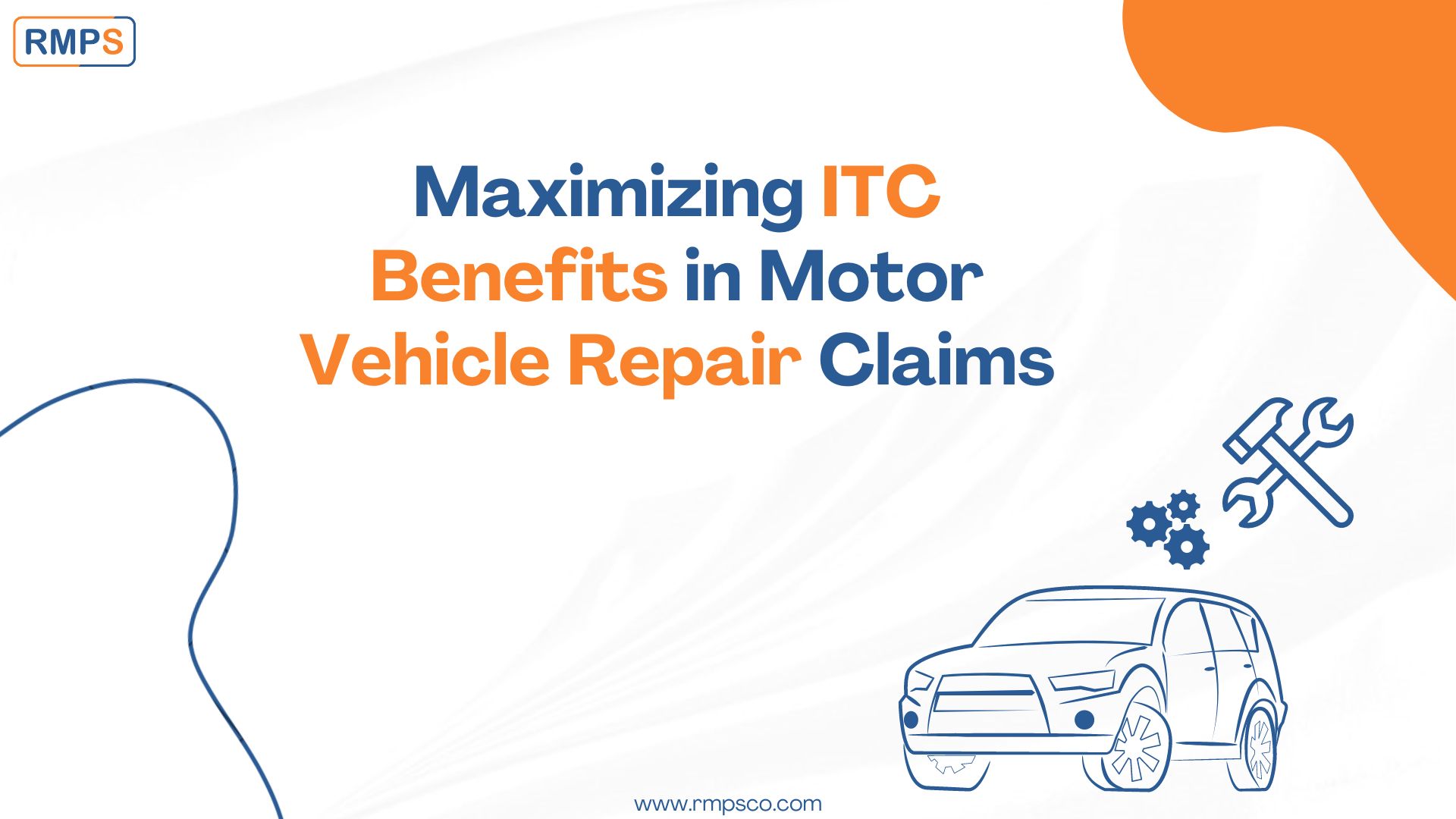
Insurance companies frequently encounter questions about the eligibility of Input Tax Credit (ITC) on expenses related to motor vehicle repairs, particularly in reimbursement claim scenarios. It’s vital to offer clients precise and transparent guidance on these issues. This blog explains the latest clarifications from the Central Board of Indirect Taxes and Customs (CBIC) to promote consistency in ITC application.
Key Takeaways from Circular No. 217/11/2024-GST
1. Modes of Claim Settlement: Insurance companies settle claims in two primary modes:
- Cashless Mode: The insurance company pays the network garage directly.
- Reimbursement Mode: The policyholder pays the non-network garage and gets reimbursed by the insurance company.
2. Eligibility of ITC in Reimbursement Mode:
- Invoices in the Name of Insurance Companies: Insurance companies can claim ITC on repair services if the invoices are issued in their name, even when the policyholder first makes the payment and then gets reimbursed.
- Definition of Recipient: According to section 2(93) of the CGST Act, the insurance company is the recipient of repair services because they bear the final liability for the repair costs.
3. Extent of ITC Availability:
- Approved Claim Cost: ITC is available only on the approved claim cost reimbursed by the insurance company. When a garage issues a single invoice for the full repair cost, ITC is restricted to the portion that the insurance company reimburses.
- Separate Invoices for Excess Amounts: If garages issue two invoices, one for the insurance-approved cost and another for the excess amount, ITC is only applicable to the insurance-approved invoice.
4. Invoices Not in the Name of Insurance Companies:
- ITC is not available if the repair invoices are not issued in the name of the insurance company, as per sections 16(2)(a) and (aa) of the CGST Act.
Practical Implications for Insurance Companies
Document Management:
- Ensure that repair service invoices are correctly issued in the name of the insurance company.
- Maintain detailed records of all transactions, especially when dealing with non-network garages.
Compliance:
- Regularly update internal policies to align with the latest GST circulars and clarifications.
- Train staff to handle claims and ITC documentation accurately to avoid disputes during audits.
Client Advisory:
- Advise clients (policyholders) on the importance of proper documentation and timely communication with their insurance providers regarding repair costs.
- Provide clear instructions on how to proceed with repairs and claim settlements to ensure compliance with GST regulations.
Conclusion
The recent CBIC circular provides much-needed clarity on ITC entitlement for insurance companies dealing with motor vehicle repairs. By following these guidelines, insurance companies can streamline their claim settlement processes and ensure proper ITC availment.
For more information please refer below circular :
LinkedIn Link : RMPS Profile
This article is only a knowledge-sharing initiative and is based on the Relevant Provisions as applicable and as per the information existing at the time of the preparation. In no event, RMPS & Co. or the Author or any other persons be liable for any direct and indirect result from this Article or any inadvertent omission of the provisions, update, etc if any.
Published on: July 19, 2024
